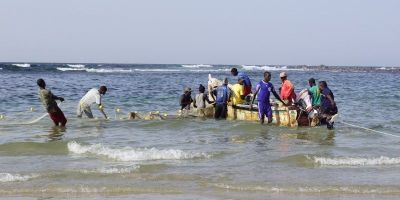Reflection: Food Global Collaborative workshops at the Montpellier Process

Ankitha Manohar attended workshops about sustainable food transformation systems at the University of Montpellier, France. In this article, she reflects on the experience.
In April 2024, I was privileged to attend a training school focused on sustainable food transformation systems at the University of Montpellier, France.
Hosted alongside the prestigious Montpellier Process, this global event brought together esteemed scientists, policymakers and agents of change, all dedicated to addressing the critical challenges facing our food systems today.
Food systems transformation
As part of the University of Montpellier and University of Pretoria’s Feed-Protect-Care Global Collaborative PhD Platform, I had the opportunity to engage in theoretical lectures, immersive field trips and thought-provoking discussions with experts and peers from diverse backgrounds.
The programme brought together 33 early-stage PhD students.
During the training school, the cohort focused on “Obstacles to food systems transformation: the enhancement of diversity and intercultural perceptions.”
I was part of a working group tackling the challenge of science/lab-based innovation versus on-farm innovation.
We debated whether innovation alone is sufficient for food system transformations and explored how the science-policy interface could boost these efforts.
Feedback from those most affected by change is essential
I then participated in the panel discussion ‘Forward looking actions for interrogation and commitment,’ which was framed by Guillaume Grosso (CGIAR) and moderated by Joao Campari (WWF).
During the panel, I emphasized the importance of a bottom-up approach to food system transformation, highlighting the need to consult with local farmers and communities to address on-the-ground challenges.
I also stressed the importance of thinking and acting both locally and globally, recognizing the interconnectedness of actions at different scales.
Feedback from those most affected by change is essential, particularly in policy matters, to ensure we are improving their situations in the long term.
Innovative strategies and collaborative approaches
The event gave me invaluable insight into innovative strategies and collaborative approaches aimed at fostering sustainable food practices.
From discussions on cutting-edge research to impactful policy initiatives, I gained a holistic perspective of the complexities of food sustainability and the urgent need for concerted action.
The diversity and expertise of the researchers I collaborated with were inspiring, fostering meaningful interdisciplinary discussions and insights.
The motto of the Montpellier Process (MGD24), "Pooling collective intelligence," was palpable throughout our training, as we continuously learned from each other and built upon our collective knowledge.
A key point that Patrick Canon (University of Montpellier and CGIAR) discussed during our training school comes to my mind: “Think and act both locally and globally.”
This highlights the interconnectedness of actions at different scales and underscores the importance of considering broader global goals.
My experience at Montpellier highlights the power of collaboration and collective intelligence in driving meaningful change in food systems.
About Ankitha
Ankitha Manohar is a PhD researcher in the School of Earth and Environment, funded by the UK Research and Innovation’s NERC Panorama DTP (doctoral training partnership).
She investigates systems approaches for understanding climate-smart mariculture and coastal aquaculture.
In response to the need for innovative and climate-smart approaches to food production, Ankitha collaborates on solutions to balancing biodiversity conservation and food security.
She focuses on integrated multi-trophic mariculture and aquaculture, with an emphasis on supporting livelihood resilience and understanding their fate under the current climate crisis.





